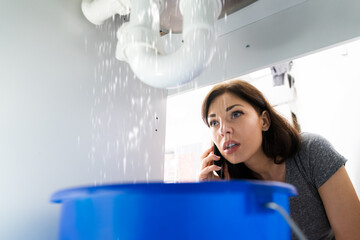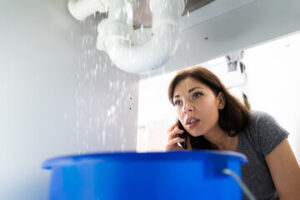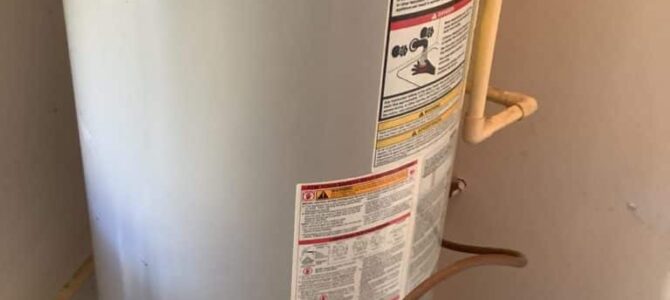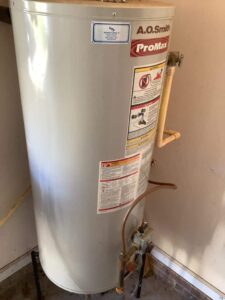Plumbers Bradenton focus on the plumbing systems of homes. This involves repairing and installing water pipes, fixtures, and appliances like sinks, toilets, showers, and water heaters. They also work with sewage and waste disposal systems.
Residential plumbers are often called to repair leaking faucets and clogged drains. These issues are usually easier to diagnose and fix than problems in commercial buildings, which can have multiple floors and complex plumbing systems.
Licensed plumbers install plumbing systems in homes and buildings. They use different materials like copper, PVC, and cast iron to assemble pipes, fittings, and valves. They also inspect plumbing systems to identify problems and ensure that they meet building codes. Plumbers often collaborate with other professionals, such as construction teams and architects, to ensure that plumbing is properly integrated into building projects.
Residential plumbing services include drain cleaning, water heater installation, and leak detection. Leaking pipes and faucets are common problems that homeowners face, and a plumber can fix them quickly and efficiently. They can also install new fixtures, such as toilets, showers, and sinks. A plumber can also reroute existing pipes when adding an extension to a home or installing a new kitchen or bathroom.
While plumbing systems are designed to last for a long time, they can become damaged over time due to wear and tear or improper maintenance. Damaged plumbing systems can cause leaks, which lead to expensive repair and replacement costs. To prevent this, it’s important to schedule regular maintenance services for your plumbing system. A professional plumber will inspect your plumbing system and make necessary repairs to prolong the life of your plumbing system.
One of the most important things to remember when choosing a plumber is whether they are licensed and insured. This will protect you in the event that they cause additional damage to your property while working on your plumbing system. In addition, a licensed plumber will be familiar with local plumbing regulations, which may differ from state to state.
While commercial plumbing is similar to residential plumbing in many ways, there are some key differences. For example, a commercial plumbing job will require more knowledge of large-scale plumbing systems and more stringent work standards. In addition, a commercial plumber will be able to handle more complex tasks, such as rerouting and installing water systems for restaurants and hotels.
Repair
Plumbing repairs are a common service offered by plumbers, and they often deal with things like clogged drains, leaky faucets, and water heater problems. They can also replace parts in plumbing systems, such as water filters or shower heads, to improve performance. They might also reroute pipes when remodeling a home or adding an extension. These tasks require more advanced skills than simple installation, so it’s important to hire an experienced residential plumber for these jobs.
Residential plumbers can also help with gas line repair and installation. This service includes ensuring that gas lines are properly connected to appliances and that there are no leaks or other issues. They might also help with kitchen and bathroom renovations by installing new fixtures and pipes. For example, if a homeowner wants to install a new dishwasher or stove, a plumber can install the necessary gas lines.
Leaks and other issues with plumbing systems are common in residential homes. Plumbing professionals can fix these problems quickly and efficiently. For example, a plumber might use a pipe snake to clear a clogged drain or may cut open walls to locate and repair a leaky pipe. Some homeowners may even need to replace entire sections of their plumbing systems if the damage is severe.
One of the most common issues that residential plumbers repair is a faulty toilet flapper. This problem can lead to water backflow, which is dangerous for people in the home. It can also cause higher utility bills than normal. Plumbers can fix the flapper or install a new one to prevent this issue from occurring again in the future.
Commercial plumbing services are very different from those of residential plumbers. Commercial plumbers typically work in large, industrial buildings with multiple occupants. They might need to install complex systems that manage waste removal, water supply, and fire sprinklers. These projects may involve collaborating with architects, construction teams, and facility managers to ensure that the plumbing system is integrated into the overall building design.
In addition, commercial plumbers may need to inspect and repair plumbing systems in restaurants, retail stores, hospitals, and office spaces. They might also need to work with high-pressure water and gas lines, which can be dangerous if not handled correctly. To be successful in this field, it’s important for commercial plumbers to have extensive knowledge of local codes and regulations.
Maintenance
Residential plumbing services are a key part of keeping your house running smoothly. From clogs to water leaks, residential plumbers can handle a variety of issues and help you prevent major problems down the road.
Plumbers use a variety of tools and techniques to install and repair pipe systems in homes. They also work with building codes and regulations to ensure their installations are up to standard. Residential plumbers often provide services that include removing and installing toilets, faucets, sinks, showers, water heaters, and more. They also troubleshoot issues like water leaks and clogs to determine the source of the problem and fix it accordingly.
Having a functional and efficient plumbing system in your home is essential for the safety and comfort of your family. Leaky pipes, clogged drains, and broken appliances can lead to serious problems in the future if not addressed immediately. To keep your home safe and in good condition, it’s important to hire a professional residential plumber for regular maintenance and emergency services.
In addition to offering residential plumbing services, some companies also specialize in commercial plumbing. If you’re looking for a plumber to service your commercial building, make sure they have experience working in that type of setting. This will ensure they know how to properly service and maintain the complex plumbing systems found in office buildings, malls, hotels, and more.
When it comes to plumbing, there are a lot of factors to consider. For example, the type of pipes used in a building can impact the overall system’s efficiency and longevity. Additionally, different types of fixtures require different installation and servicing methods. A commercial plumbing company will have the expertise and tools needed to service all types of building plumbing systems.
While most plumbing issues occur in the kitchen or bathroom, a plumber can also be called to handle septic tank installation and repairs, gas line installations and repairs, and more. When choosing a plumber, be sure to check their website for a list of services offered and customer testimonials. You may also want to ask about licensing and certifications, as these can indicate the level of skill and professionalism a plumber brings to the table.
Replacement
Licensed residential plumbers can install, inspect, and repair many types of plumbing fixtures in your home or commercial property. These include toilets, kitchen and bathroom sinks and faucets, showers and tubs, dishwashers, water heaters, garbage disposals, and septic tank systems. They can also replace pipes and other plumbing components such as clogged drains or damaged sewer lines.
Most homeowners know that their toilets and drain lines can clog from time to time. These clogs are usually caused by food, hair, paper products, and other insoluble substances that are sent down the drains. Many clogs are easily removed with a plunger or drain snake, but some may require more extensive (and expensive) repairs. A plumber can determine what is causing the clog and recommend the best solution.
The supply pipes in your walls and floors have a lifespan of between 70 and 100 years, but they can wear out or become damaged over time. These pipes may need to be replaced or upgraded to higher quality materials such as PEX, PVC, or ABS. Plumbers can also replace old galvanized pipes in homes and businesses that are prone to corrosion.
Licensed residential plumbers can also install backflow prevention devices in waterlines that connect to household appliances such as washing machines, dishwashers, and toilets. These devices help reduce contamination in drinking water by preventing backflow from non-potable water sources. Many states require backflow prevention devices in commercial buildings and homes.






